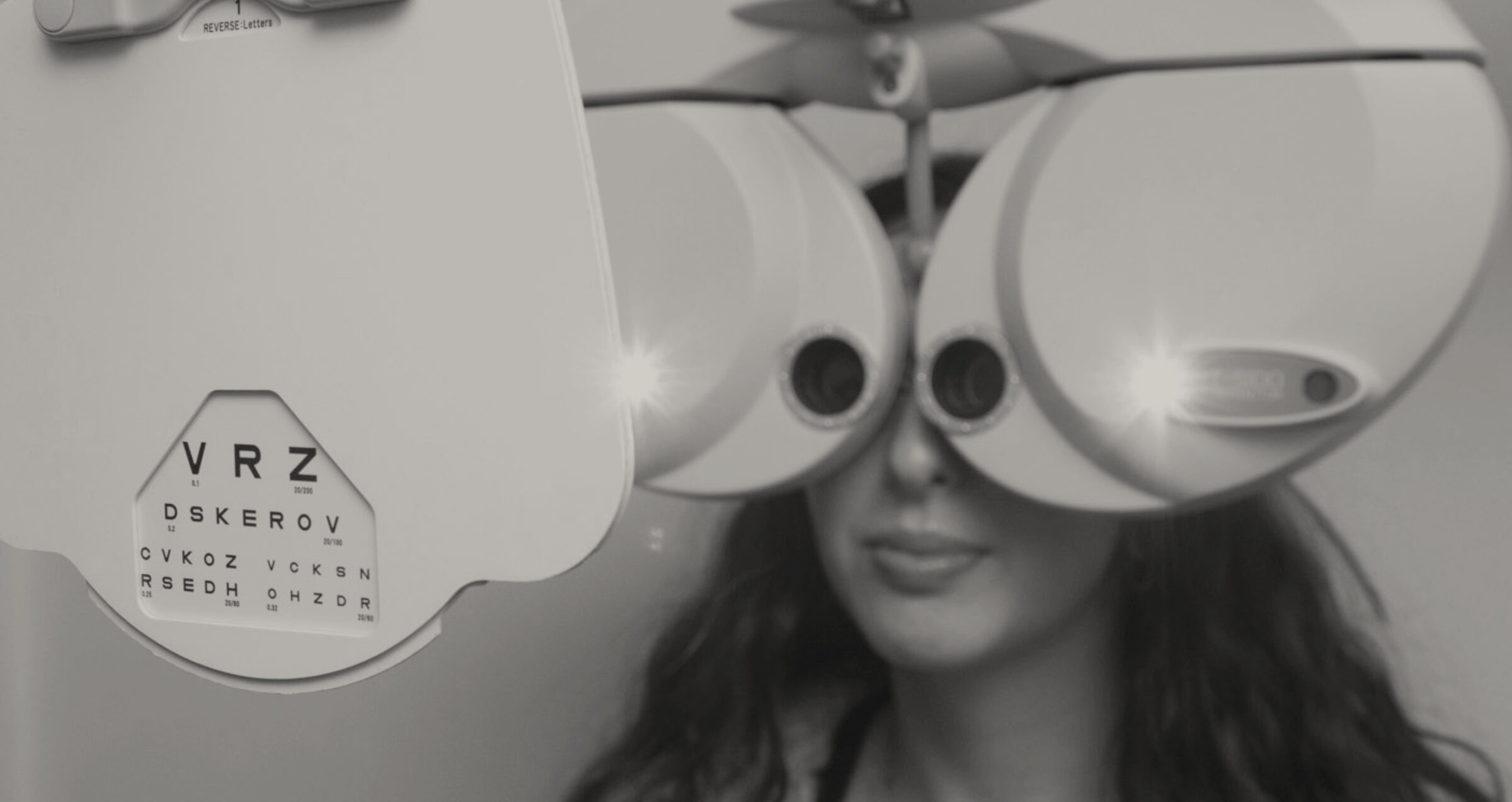The eye exam

An eye examination lasts around 40 minutes and, as well as determination of the spectacle prescription, includes checks for binocular function and screening for eye disease such as glaucoma, cataract and macular degeneration.
I use the latest Nidek refraction unit that enables me to make measurements that are accurate to 0.12 dioptres and 1º on the astigmatic axis. (Combined with the ZEISS iProfiler, this makes for super-accurate refractions, resulting in exceptional vision).
Please note that we don’t do NHS eye exams.
This remarkable instrument measures the eyesight across 1500 points on each cornea, building a topographical focus map that, when coupled with the subjective refraction (me asking questions), produces a highly accurate measure of focus error.
ZEISS uses this info to produce custom-made lenses that results in the best vision possible, accurate to 0.01 of a diopter where the industry norm is 0.25.
We are the only London-based optician to have this technology.
As well as checking the health of the back of the eye, retinal photography aids diagnosis of retinal conditions and insights into the state of the vascular system, including high blood pressure and diabetes.
Included as standard in all eye examinations.
To screen for glaucoma, it’s essential to measure the pressure inside the eye.
I use a new instrument that doesn’t employ an unpleasant puff that pretty much everyone finds uncomfortable.
The iCare Tonometer uses an alternative technology, which is more efficient and considerably more comfortable than the puff.
I offer an advanced scan that images the tissues of the retina, similar to an MRI or an X-ray. This can reveal any early signs of macular degeneration and glaucoma, both of which rely on early detection for best treatment. For flashes and floaters, it provides a differential diagnosis between a retinal detachment (serious) and a vitreous detachment (usually harmless) without a five-hour wait at Moorfields.
It also scans the optic nerve head and can reveal cranial swelling (or hopefully the lack of) and neural changes from glaucoma. There is ongoing research into changes in the retinal nerve fibre thickness over time that may aid prediction of the onset of Alzheimers.
There is an additional £60 fee for an OCT scan.
We take time to discuss your vision requirements, taking into account such factors as computer screen distance, visual angles, TV distance, dashboard position, etc.
Certain professions, such as musicians and pilots, have very specific visual requirements and accurate assessment is required for optimal visual comfort.
I’m very happy to discuss all options of eye care and present an unbiased opinion on the pros and cons of laser refractive surgery.
I have a network of trusted ophthalmologists who I work with regularly and will refer you to them as required, be this for laser surgery, cataract, retinal issues, glaucoma or binocular vision anomalies.